Phil Ochs - Greatest Hits (Reissue) (1970/1986)
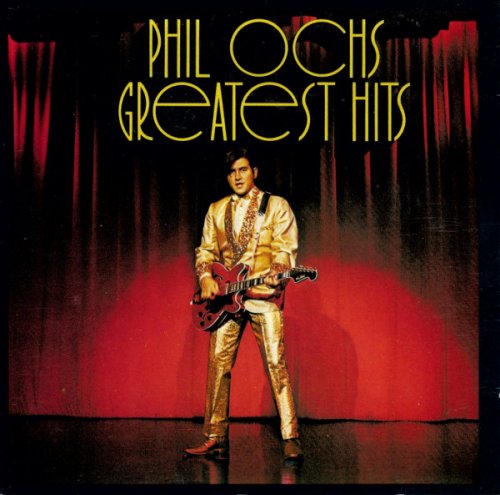
Artist: Phil Ochs
Title: Greatest Hits
Year Of Release: 1970/1986
Label: Edsel Records
Genre: Folk Rock, Singer-Songwriter
Quality: Flac (tracks, .cue, log)
Total Time: 38:05
Total Size: 215 Mb
WebSite: Album Preview
Title: Greatest Hits
Year Of Release: 1970/1986
Label: Edsel Records
Genre: Folk Rock, Singer-Songwriter
Quality: Flac (tracks, .cue, log)
Total Time: 38:05
Total Size: 215 Mb
WebSite: Album Preview
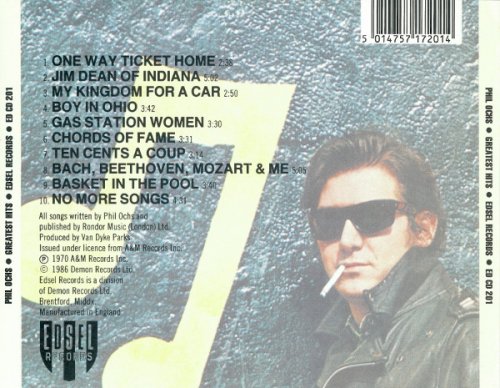
Tracklist:
01. One way ticket home
02. Jim Dean of Indiana
03. My kingdom for a car
04. Boy in Ohio
05. Gas station women
06. Chord of fame
07. Ten cents a coup
08. Bach, Beethoven, Mozart & Me
09. Basket in the pool
10. No more songs
Philip David Ochs (/ˈoʊks/; December 19, 1940 – April 9, 1976) was an American protest singer (or, as he preferred, a topical singer) and songwriter who was known for his sharp wit, sardonic humor, earnest humanism, political activism, insightful and alliterative lyrics, and distinctive voice. He wrote hundreds of songs in the 1960s and 1970s and released eight albums.
Ochs performed at many political events during the 1960s counterculture era, including anti-Vietnam War and civil rights rallies, student events, and organized labor events over the course of his career, in addition to many concert appearances at such venues as New York City's Town Hall and Carnegie Hall. Politically, Ochs described himself as a "left social democrat" who became an "early revolutionary" after the protests at the 1968 Democratic National Convention in Chicago led to a police riot, which had a profound effect on his state of mind.
After years of prolific writing in the 1960s, Ochs's mental stability declined in the 1970s. He eventually succumbed to a number of problems including bipolar disorder and alcoholism, and died by suicide in 1976.
Ochs performed at many political events during the 1960s counterculture era, including anti-Vietnam War and civil rights rallies, student events, and organized labor events over the course of his career, in addition to many concert appearances at such venues as New York City's Town Hall and Carnegie Hall. Politically, Ochs described himself as a "left social democrat" who became an "early revolutionary" after the protests at the 1968 Democratic National Convention in Chicago led to a police riot, which had a profound effect on his state of mind.
After years of prolific writing in the 1960s, Ochs's mental stability declined in the 1970s. He eventually succumbed to a number of problems including bipolar disorder and alcoholism, and died by suicide in 1976.
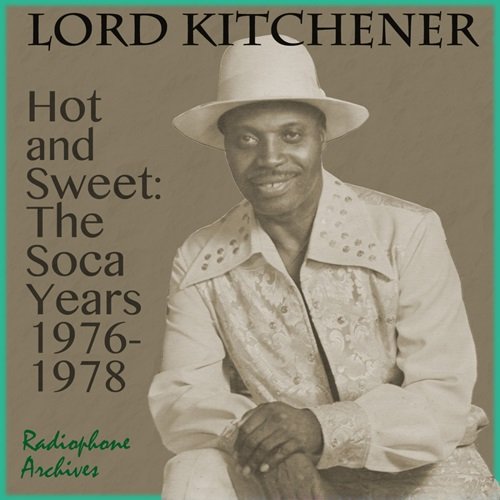
![Henrique Gomide, Céline Rudolph & João Luís Nogueira - Amaré (2025) [Hi-Res] Henrique Gomide, Céline Rudolph & João Luís Nogueira - Amaré (2025) [Hi-Res]](https://www.dibpic.com/uploads/posts/2025-10/1759406727_h4bynvxj5xuhc_600.jpg)
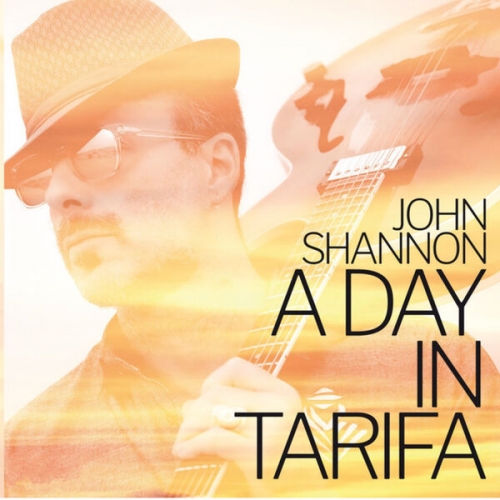

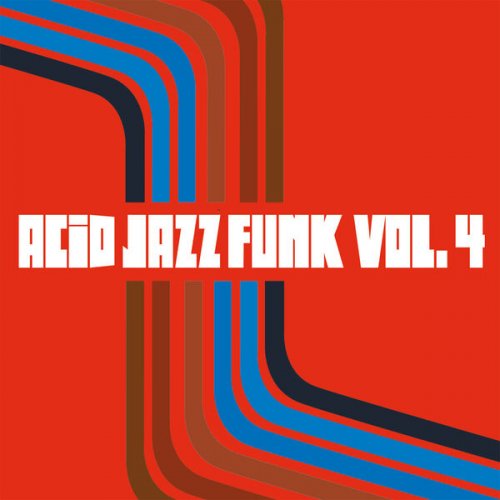
![Nala Sinephro - The Smashing Machine (Original Motion Picture Soundtrack) (2025) [Hi-Res] Nala Sinephro - The Smashing Machine (Original Motion Picture Soundtrack) (2025) [Hi-Res]](https://www.dibpic.com/uploads/posts/2025-10/1759409492_7cqyq1e29xj143weri20frlft.jpg)
![Sued Nandayapa Bergmann Saunders - The Valley (2025) [Hi-Res] Sued Nandayapa Bergmann Saunders - The Valley (2025) [Hi-Res]](https://www.dibpic.com/uploads/posts/2025-10/1759653227_db55f5t5r7gtc_600.jpg)
![Vidar Johansen - «4x70» LIVE IN MOLDE (2025) [Hi-Res] Vidar Johansen - «4x70» LIVE IN MOLDE (2025) [Hi-Res]](https://img.israbox.com/img/2025-10/04/bwlkc61k4ruy1bun4u2btx8j4.jpg)
